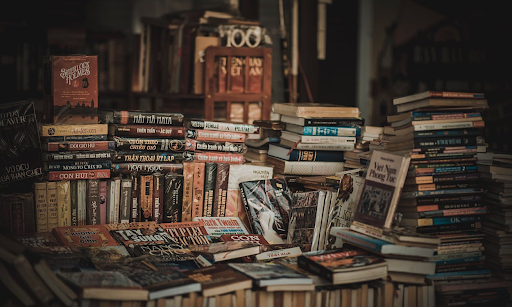Blogs
Political Fiction Books: Stories That Mirror Power and Society

From the halls of government to secret negotiations behind closed doors, politics has always fascinated readers. Political fiction takes this fascination and transforms it into stories that explore power, corruption, resistance, and the struggle for justice. For American readers, these books often feel less like fantasy and more like a reflection of reality, echoing debates we see in the news every day.
In this blog, we’ll dive into what political fiction is, its history, the most influential works, and why it continues to matter.
What Defines Political Fiction?
At its core, political fiction uses storytelling to explore systems of power. Unlike other genres, the conflict isn’t just personal—it’s societal. Characters often find themselves caught between duty and conscience, power and morality, freedom and oppression.
A political novel might explore:
- Governments abusing authority
- Citizens resisting injustice
- The cost of war and diplomacy
- The moral gray areas of leadership
Unlike dry political theory, these stories breathe life into issues, giving readers an emotional lens through which to see global struggles.
A Brief History of Political Fiction
Political fiction is not new. Some of the world’s greatest novels are deeply political in nature.
- George Orwell’s 1984 (1949) warned against authoritarian control, surveillance, and the destruction of truth.
- Margaret Atwood’s The Handmaid’s Tale (1985) imagined a dystopian America where women’s rights are stripped away.
- Arthur Koestler’s Darkness at Noon (1940) confronted the horrors of Stalinism.
- Ayn Rand’s Atlas Shrugged (1957) challenged collectivism through a lens of radical individualism.
These books didn’t just entertain—they shaped cultural conversations, sparking debates that continue today.
Political Fiction and American Readers
For Americans, political fiction has a unique resonance. Living in a democracy means grappling with questions of freedom, leadership, and justice daily. From Cold War spy thrillers to novels exploring civil rights, these books reflect ongoing national conversations.
Political novels often tackle themes that Americans care deeply about:
- Freedom of speech
- The dangers of unchecked power
- The role of media in shaping truth
- Civil liberties in times of crisis
By turning these issues into compelling stories, political fiction allows readers to explore what’s at stake without reading a history textbook.
Famous Examples of Political Fiction
To understand the genre better, let’s look at some standout examples that have captured readers worldwide.
- All the King’s Men by Robert Penn Warren – Loosely inspired by Louisiana Governor Huey Long, this Pulitzer-winning novel explores ambition, corruption, and the compromises of political life.
- Catch-22 by Joseph Heller – A satirical take on war and bureaucracy, showing how systems can be as absurd as they are dangerous.
- Advise and Consent by Allen Drury – A gripping look inside the U.S. Senate during the Cold War, exposing power struggles behind official decisions.
- The Plot Against America by Philip Roth – An alternate history imagining Charles Lindbergh as U.S. president, flirting with fascism on American soil.
- Parable of the Sower by Octavia E. Butler – A dystopian tale set in a near-future America collapsing under climate change and inequality.
Each of these books doesn’t just tell a story—they force us to question what kind of society we are building.
Modern Political Fiction: Still Relevant Today
Today’s authors continue to reinvent the genre, addressing new challenges like:
- Cybersecurity and digital surveillance
- Climate change and resource wars
- Global terrorism and espionage
- Polarization in democracy
Novels like Dave Eggers’ The Circle explore corporate surveillance, while Chimamanda Ngozi Adichie’s Half of a Yellow Sun blends history and politics through a human lens. Readers searching for relevance in today’s headlines often find political fiction alarmingly close to reality.
Why Readers Love Political Fiction
Why do these stories resonate so strongly, especially in America?
- They feel real. Political fiction often draws directly from history, so the line between fact and fiction blurs.
- They spark debate. A powerful novel doesn’t just end on the page—it fuels conversations at dinner tables and classrooms.
- They remind us of consequences. Choices made by leaders affect everyone. Political fiction shows us what happens when those choices go wrong.
- They humanize politics. Instead of abstract debates, these books put us in the shoes of characters living through upheaval.
Political Fiction and the Author’s Craft
For authors, writing political fiction requires a balance between storytelling and commentary. Too much politics, and the novel risks sounding preachy. Too much story, and the message may be lost. The most successful books weave both seamlessly, delivering gripping plots while raising questions that linger long after the final page.
Writers of political fiction often draw inspiration from real events—wars, scandals, revolutions—and reimagine them in ways that highlight moral dilemmas. It’s no surprise that many political novelists are also journalists, historians, or political observers.
The Lasting Power of Political Fiction
Political fiction endures because it forces us to reflect on our world. While history gives us facts, novels give us meaning. They let us ask “what if?” and challenge us to think about how society should function.
For American readers especially, these books can feel prophetic. In an era of polarization, misinformation, and global uncertainty, political fiction offers both warnings and hope. It reminds us that, even in the darkest times, individual choices can change the course of history.
Why You Should Read Political Fiction
If you’ve ever turned off the evening news in frustration, political fiction offers a different perspective. It allows you to grapple with the same issues—power, corruption, freedom—through the lives of characters you care about. It’s a genre that entertains, provokes, and ultimately deepens our understanding of the world.
Whether you’re revisiting classics like 1984 or exploring modern novels that tackle cyber-politics, political fiction remains one of the most vital literary forms today. And for readers of American democracy, it feels less like fiction and more like a mirror reflecting our struggles, fears, and hopes.